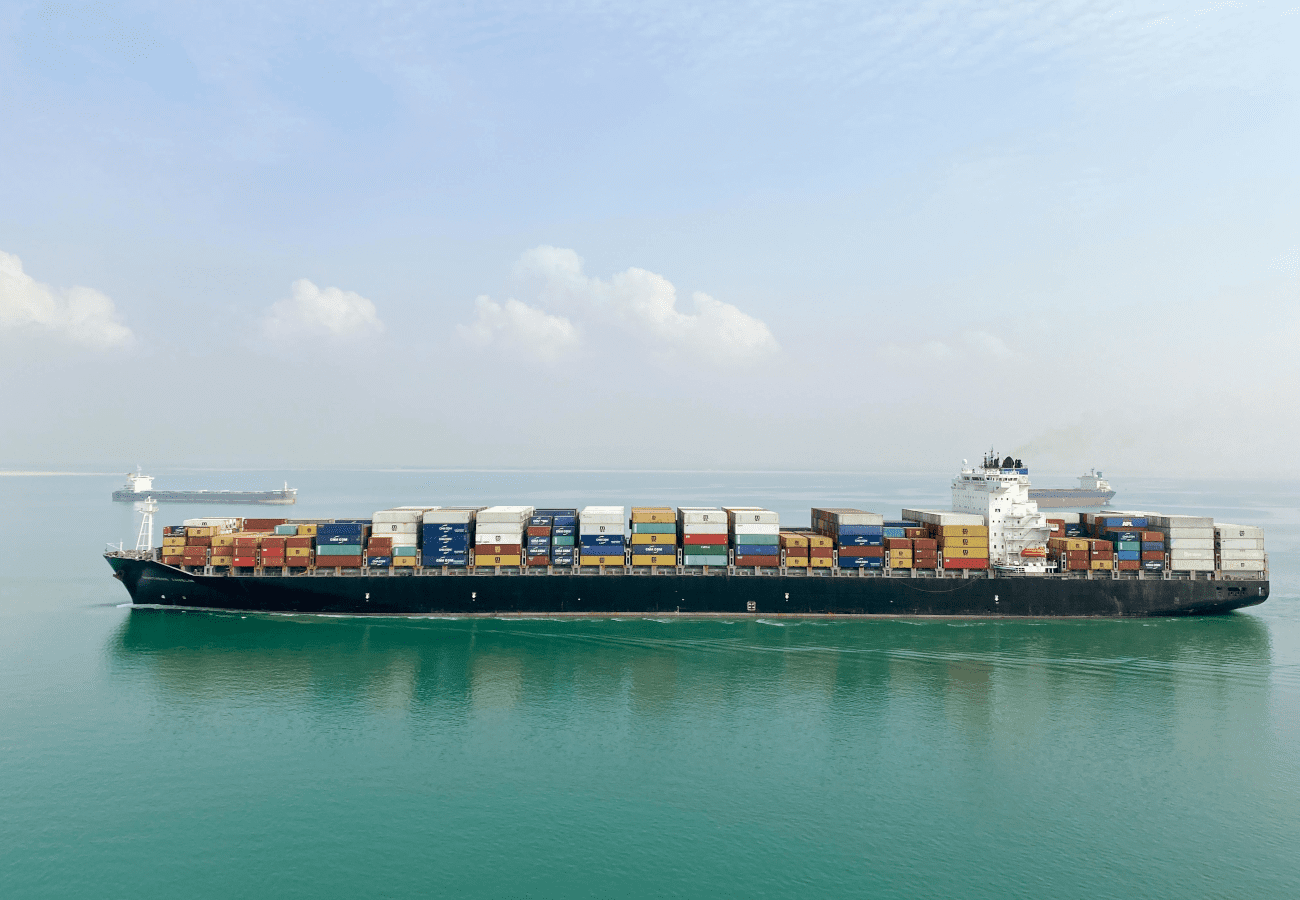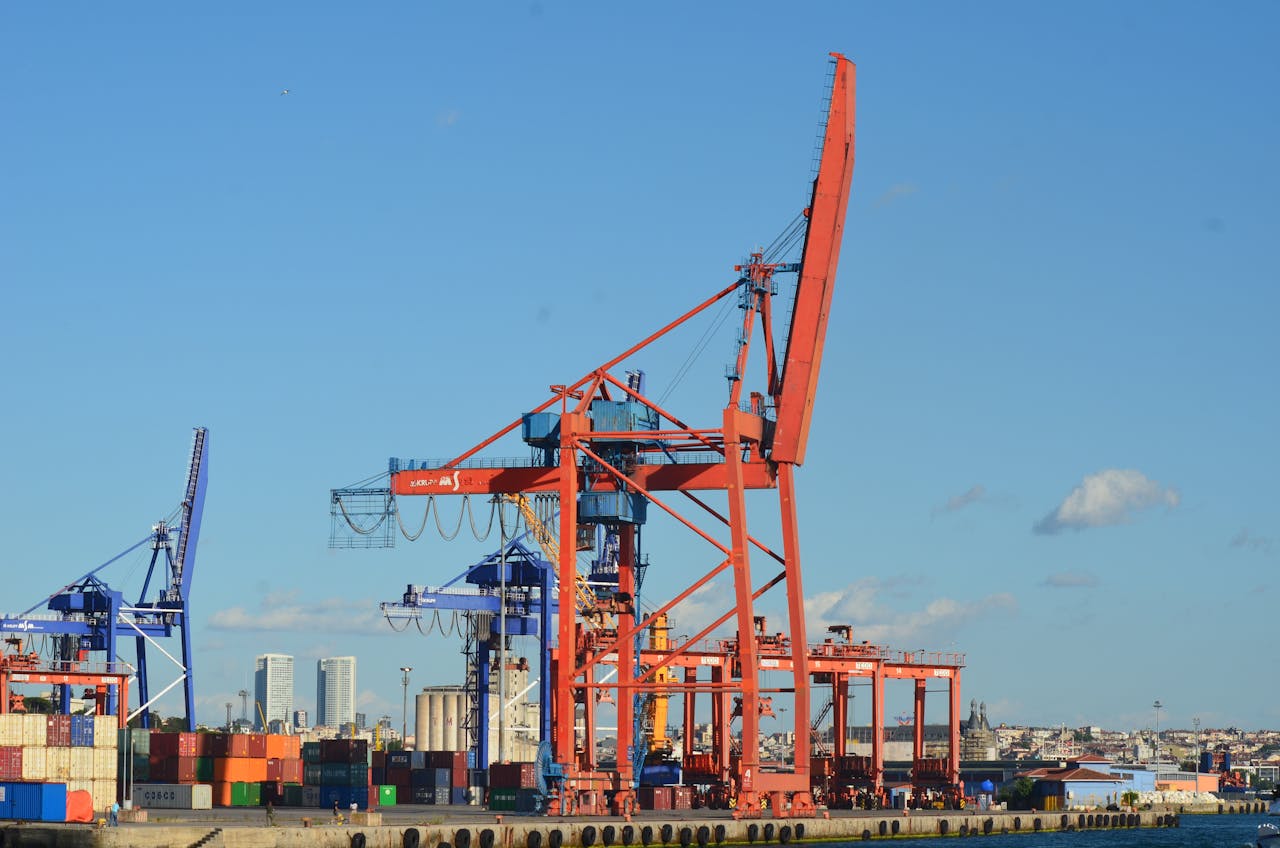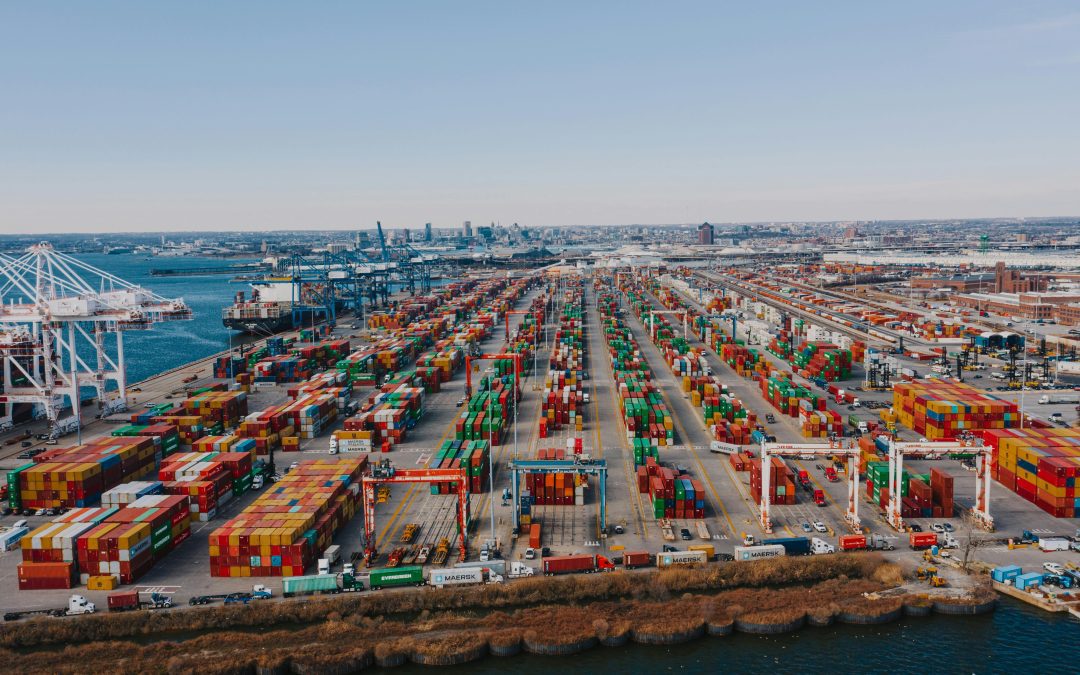Freight costs don’t exist in a vacuum.
Global politics plays a key role in shaping shipping rates, route availability and overall stability for your supply chain. From armed conflicts and sanctions to port strikes and political change, geopolitical events can cause freight rates to spike or plunge in a matter of hours.
For UK manufacturers, importers and exporters, understanding what can cause freight rates to change is important. Whether you’re sourcing goods from China or moving products from the UK to the US, it will help you to plan effectively, stick to your budget and look after your bottom line.
How Geopolitics Impacts Freight Rates
Freight rates all over the world are tied to geopolitical changes. Here are some of the ways global events can have an impact…
Route Disruptions
Sometimes, key shipping routes can become blocked or unsafe, forcing vessels to reroute or become stuck. This usually adds days or weeks to transit times and results in added costs.
When the Suez Canal was blocked for 6 whole days in 2021, over 400 ships were stuck and had to reroute, adding up to two weeks to their transit times and incurring significant fuel costs.

Port Closures and Sanctions
Political conflicts can cause specific ports to become inaccessible, impacting capacity and pushing up prices as carriers rush to find alternatives.
The Russia-Ukraine conflict, for example, triggered broad sanctions and reduced available routes, resulting in soaring European air freight costs in 2022.
Fuel Price Volatility
OPEC production cuts or conflict in major oil-producing regions can bring about volatile changes in fuel prices. And fuel price forms a huge part of freight costs.
Tension in the Middle East and OPEC decisions have increased marine fuel prices on numerous occasions, consequently affecting both sea and air freight worldwide.
Trade Restrictions and Export Bans
New tariffs and export bans can impact the global flow of goods, requiring businesses to adapt quickly and causing spikes in alternative services and routes. From 2020 to 2022, COVID-related port closures in China caused massive delays, rate increases and container demand that the entire shipping industry felt for many months after.
What Types of Shipments Are Most Affected?
Geopolitical events can impact some types of shipments more than others:
High-Value or Time-Sensitive Cargo
Goods that are expensive or have shorter delivery windows, like electronics, fashion and perishables, are more sensitive to delays or rerouting because issues can lead to big losses.
Just-In-Time Supply Chains
Some businesses have inventories with minimal buffer stock. These are particularly at risk of freight disruption because even the smallest of delays can snowball into stockouts or production issues.
Small and Medium Enterprises (SMEs)
SMEs tend to have less buying power to absorb pricing spikes, leading them to suffer when geopolitical events hike freight rates.
What Can Businesses Do to Protect Themselves?
You can’t control world events, but you can become more resilient to changes that happen. Here’s how.
Build Flexibility Into Your Shipping Strategy
Always have backup options to hand. Relying on a single carrier, route or port leaves you vulnerable to delays if they aren’t available, have hit capacity or become blocked.
Diversify Suppliers and Ports of Entry
Where possible, find multiple suppliers and entry points. This protects you against potential strikes, border closures or political instability.
Reconsider Just-in-Time Inventory
Rethink your inventory strategy. Holding buffer stock or building in longer lead times can ease pressure in periods of high demand or instability.
Consolidate Shipments If Suitable
Use consolidated shipping where appropriate. Sharing container space with other businesses can bring down costs and reduce the impact of sudden rate hikes.
Use a Freight Forwarder
Trusted freight partners like Millennium Cargo proactively monitor global risk and can pivot fast by rerouting shipments and expertly advising on alternatives to keep your consignment on the move.

Why Working With the Right Freight Partner Matters
When geopolitical events disrupt global trade, the difference between a late delivery and a smooth-running supply chain is often the freight forwarder you work with.
At Millennium, we’re proactive. We don’t simply respond to goings on around the world; we preempt them. Our team of experts monitor political developments, routes, strike action and fuel prices so that we can act fast if circumstances change. And, with a global network at our disposal, we’re able to quickly reroute cargo and find alternative carriers to keep your goods moving.
Millennium prides itself on our people-first approach. You will always get professional, real support from our friendly team of experts – not automated updates that leave you with more questions. We listen and learn about your business and your needs, ensuring that we can give you tailored advice that gets the job done efficiently.
Here’s a real-world example:
When Red Sea tensions increased in 2024, many UK importers faced delays and rising costs. One of Millennium’s clients, who specialised in importing retail goods, was at serious risk of missing a critical launch window. With Millennium’s proactive approach in full flow, we identified the issue early and rerouted the shipment, keeping their delivery on schedule and their campaign on track.
Keep your Supply Chain Steady with Millennium
Geopolitical events are unpredictable, but your freight strategy doesn’t have to be. With the right support and proactive planning, you can weather the storm and get your goods where they need to be – on time.
Want help building a resilient freight plan? Contact Millennium Cargo for advice that puts relationships first – even when the world gets messy.

